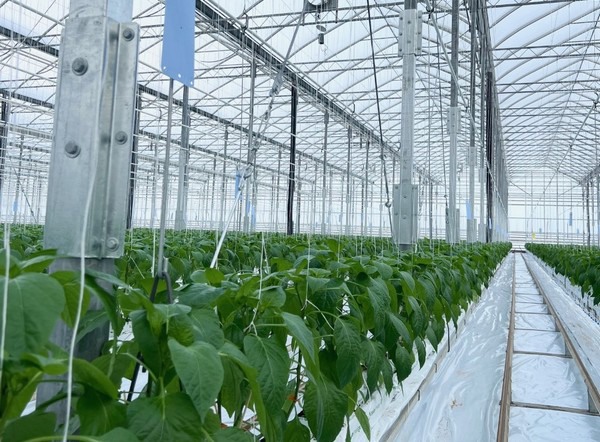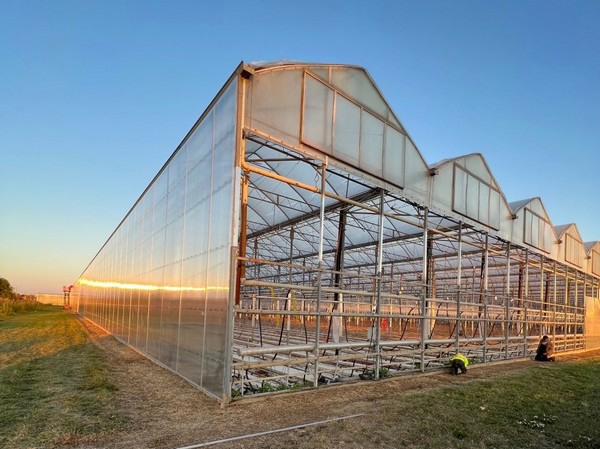After spending the first few years of the company's existence improving and field testing their products, the Israel-based artificial pollination solutions company BloomX is now ready to increase their reach on the global market.
Founded by current CEO Thai Sade, BloomX provides biomimicry artificial pollination solutions to enhance crop outcomes for growers. They identified pollination challenges that limited the productivity of crops and used a mix of AI data collection and artificial pollination machines to help achieve better results.
"There are two main challenges we are solving for. The linear growth of honeybee hives is not in line with the exponential growth of plantations that need more honeybee hives to support the pollination process. And the fact that honeybees are poorly suited to pollinate many types of crops. So we are using a suboptimal pollinator to pollinate certain crops which don't have natural pollinators in commercial use. That's the loop we are trying to solve here, so we can provide better financial and environmental outcomes for the land, the growers, and the bees," says Thai.

AI data and biomimicking machines
To solve these issues, BloomX is using a technological approach based on two pillars; AI data which is used to pinpoint the exact pollination windows for each day of the flowering season, and pollination machines.
"We use environmental conditions and their effect on the flowering conditions. For example, when flowers open and close, when they release and receive pollen etc. We collect that environmental data and use it to find the right time frame for growers to make their operations very efficient. The second pillar, which compliments the first, are the machines that pollinate in the fields and mimic the natural pollination process. What we try to do is ensure cross-pollination between varieties, which honeybees don't really do with, for instance, avocados, since they don't enjoy the flower's nectar. We use an electrostatic device that collects pollen from the flowers by passing by the flowering batches and collecting pollen as it goes. All done at the exact right time, thanks to the AI data."

"We see a 20 to 30 % increase in quantity and a significant increase in quality. In blueberries, for example, the amount of pollination affects the amount of seeds and, therefore, the size, caliber, and weight. But most of all, the solutions we offer give growers control over their process. Today, growers have little to no control over the pollination process, you can do everything right in production, but then you completely rely on insects to pollinate. There are many challenges there, and we're trying to standardize a solution and solve this for growers."
Avocados and Blueberries
As mentioned, the solutions BloomX provides are focused on flowers that honeybees don't enjoy pollinating, a great example being avocados and blueberries, which is why the pollination of these crops lays at the foundation of the company.
"We started with the avocado pollination in Israel and later on in Latin America, given that the majority of avocados are grown there. We contacted many avocado farms in Latin America to pinpoint the issues they had in their cultivation so that we could deliver something that was of real use to them. We understood the advantage of working with them as an early-stage startup, with a lot of focus on delivering value with our manual application and addressing their needs faster and more accurately."

The blueberries came later and were through a connection they made while working with an avocado grower.
"Over the last few years, we've been validating the use of our technology on those two crops and have now reached a point where we're selling the service to growers in Latin America, which is the focus now. In addition to that, we continue with product development efforts for new greenhouse crops and are working on strategic solutions for tomatoes, vegetables, peppers, and more."

As mentioned, BloomX wants to expand their market, and to achieve this are also looking into mechanizing and automating their existing solutions, which would be more relevant for countries like the US, Australia, and the EU that suffer from labor shortages.
"Currently, for the US, we are integrating our solution with companies like Burro that have an EV with fully autonomous navigation. So we integrate part of our own machines and use our AI system to manage the operation," Thai concludes.
For more information:
BloomX
31 HaPardes Rd., Rishpon
4691500, Israel
Email: info@bloomx.ag
https://www.bloomx.ag/
